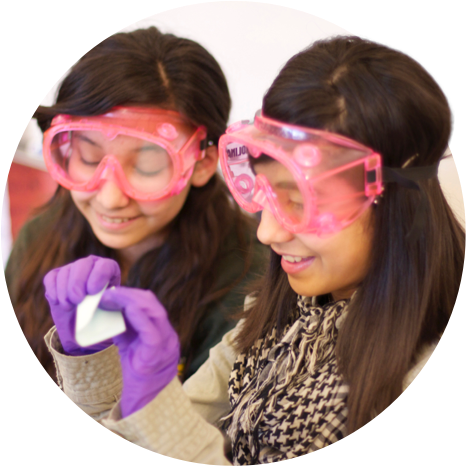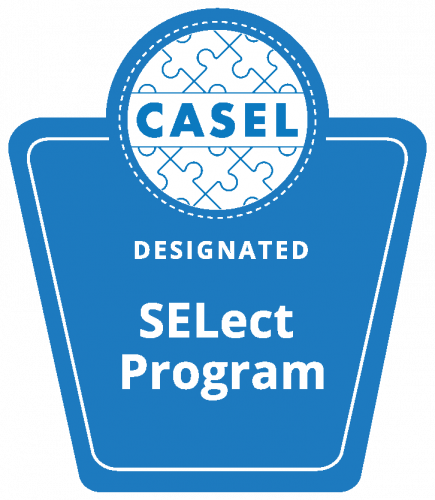The Reading Apprenticeship framework recognizes the crucial role of students’ affect in learning—how they approach challenges, collaborate, and persevere. As a CASEL SELect Program, we have demonstrated that our evidence-based practices work when implemented well. The table below highlights framework supports for the social-emotional elements of learning that make rigorous disciplinary literacy possible. Additionally, our SEL Resources Page provides tools and resources that educators can use in the classroom to support their students.
Social-Emotional Learning
| SOCIAL-EMOTIONAL LEARNING and READING COMPETENCIES | SUPPORTS IN THE READING APPRENTICESHIP FRAMEWORK |
|---|---|
GROWTH AND MASTERYStudents who believe they can increase their academic ability and success through their own effort are more likely to focus on building competence, to be self-motivating and persistent, and to exhibit behaviors associated with higher academic achievement. |
LITERACY INSTRUCTION AND SUPPORT FOCUS ON STUDENT EFFORT AND PERSISTENCE
|
IDENTITY AND COMMUNITYLearning is socially mediated. Feeling a valued part of a classroom community has significant psychological benefits and makes students more likely to engage in productive academic behaviors. |
CLASSROOM NORMS AND ROUTINES CREATE A SENSE OF SAFETY AND BELONGING
|
PASSION AND PURPOSEWhen students are interested in a subject or can connect academic tasks with their own future goals, they are more likely to demonstrate persistent effort and productive academic behaviors. |
LITERACY INSTRUCTION CONNECTS TO STUDENTS’ LIVES AND POTENTIAL FUTURES
|
SELF-EFFICACYJudgments students make about their ability to be successful at an activity influence whether they will seek out or avoid the activity, how much effort they will put forth, and how long they will persevere. |
A STRENGTHS-BASED APPROACH HIGHLIGHTS AND BUILDS ON STUDENTS’ SUCCESSES AND COMPETENCIES
|
SELF- and SOCIAL AWARENESSStudents who are aware of their own thinking can develop strategies to control their learning processes. They can articulate not only what they understand but how they understand it. They become aware of how language is used in academic texts generally and in different disciplines specifically. |
METACOGNITIVE CONVERSATION ENGAGES STUDENTS IN EXPLORING THEIR OWN THINKING PROCESSES
|
METACOGNITIVE CONTROLStudents who intentionally monitor their learning and assess their own success can recognize how to adjust their strategies as needed to achieve their learning goals. |
STUDENTS DEVELOP ACADEMIC INDEPENDENCE THROUGH SELF-REGULATION AND DELIBERATE CONTROL OVER READING AND THINKING PROCESSES
|


